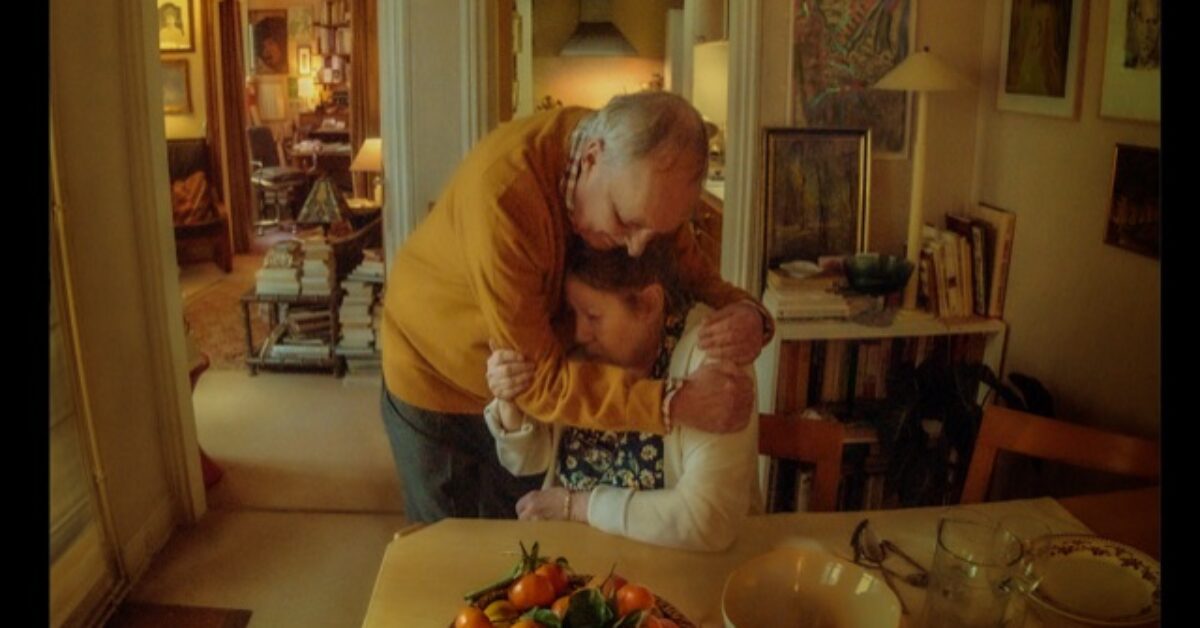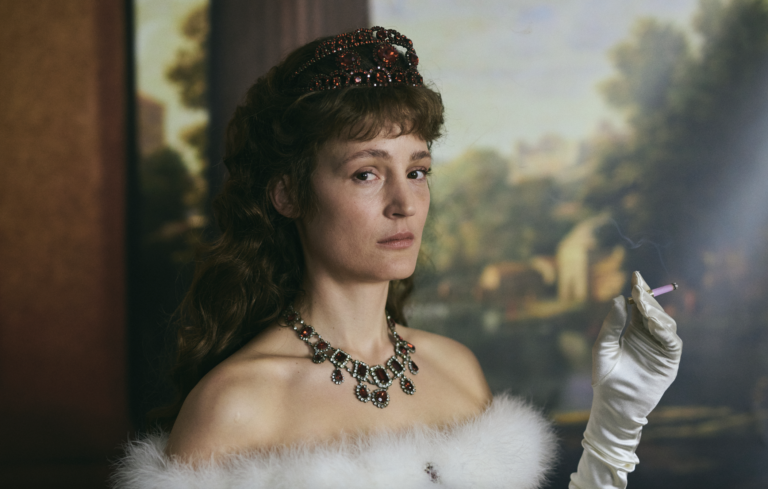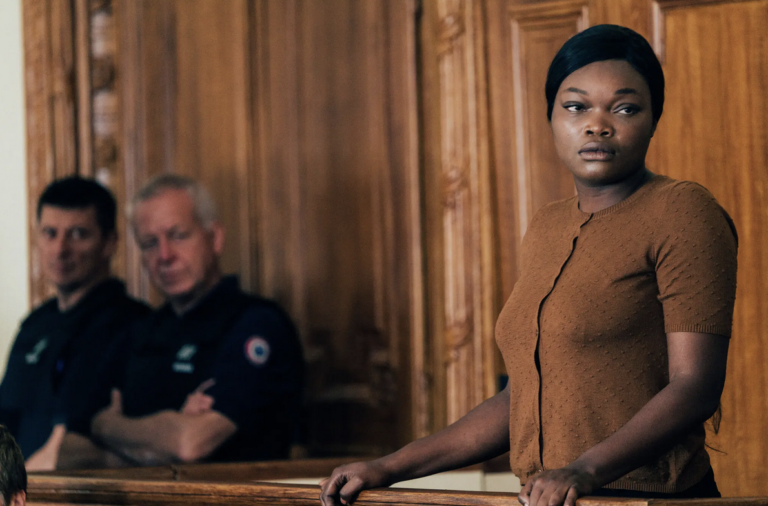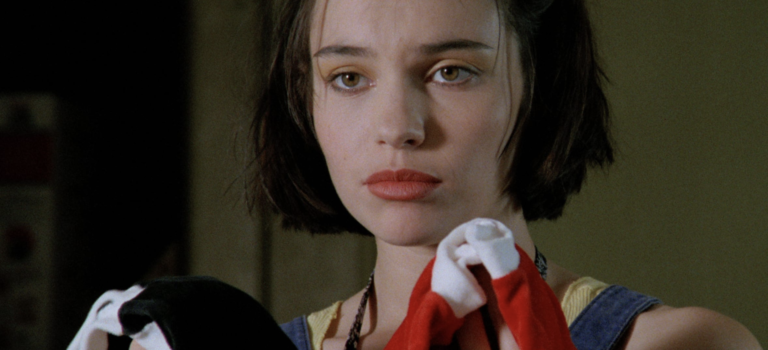It’s been a busy month pour le cinéma français. D’abord, we were treated to Gagarine, Fanny Liatard and Jérémy Trouilh’s fictional look at the lives touched by the demolition of an actual housing project in a suburb outside Paris, through the eyes of a displaced teenager. Then we went fou for Jacques Audiard’s Paris, 13th District, a sexy portrait of a triangle of young Parisians searching for direction—and love. This weekend, on the heels of the lineup reveal for the upcoming 75th annual Cannes Film Festival, step right up for the U.S. release of three new French films all opening on Friday, April 29.
Check out my interview with Charline Bourgeois-Tacquet, director of Anaïs in Love, a rom-com that flits, buzzes, and pirouettes with big ideas, extreme audacity and recklessness, and a leading lady who makes your head spin with her non-stop talking and her bold, super-irritating refusal to slow down!
Meanwhile, the famed provocateur of French cinema, Gaspar Noé (Irreversible, Into the Void, Love), best known for splattering the screen with graphic sex and violence, gives us Vortex, a deep dive into the daily life of an elderly couple struggling with dementia. While less in-your-face than his earlier work, the tense, slow-burn drama is no easier to take.
Opening with the dedication, “To all those whose brain will decompose before their hearts,” the film burrows inside the cluttered apartment of an unnamed woman played by Françoise Lebrun (The Mother and the Whore), a retired psychiatrist suffering from Alzheimer’s, and her film-critic husband (Italian horror director Dario Argento), who has his own health issues. As she becomes increasingly incapable of performing everyday tasks, he attempts to write a book about film and dreams, while growing frustrated with his wife and the complications brought on by her illness.
Noé’s stroke of genius was shooting the film almost entirely in split screen, a stylistic choice that viscerally highlights the pair’s inability to connect. As he sits at his typewriter, we see her leaving the apartment, wandering the streets, entering a store, quickly forgetting what she’s doing there. Our anxiety spikes when he discovers her gone and runs out to find her.
Their son (Alex Lutz), a one-time drug addict, arrives with his own young son in tow, clearly uncomfortable having to be the grown-up in the room. In one long scene, he explains to his parents that their living situation is unsustainable and tries to convince them it’s time to move into an assisted living facility. His father outright refuses, and his mother says, in a whisper, that they’d all be better off without her. Most of the dialogue was improvised and scenes run long and as rambling as reality, an impressive feat that backs the viewer into a corner, forced to watch as these people refuse to accept—or alter—their fates. The film, at times hard to bear, ends with a powerful sequence about what little remains of a life once it’s ripped away.
Another film turning heads this month is the latest from Portrait of a Lady on Fire director, Céline Sciamma, which also takes death head-on. A sort of fairy tale for adults, Petite Maman begins with 8-year-old Nelly (Joséphine Sanz) saying goodbye to the residents in the assisted living facility in which her grandmother has just died. She, her mother (Nina Meurisse), and her father (Stéphane Varupenne) go to her grandmother’s house to clean it out. Nelly spends the night on the couch with her mother who, in the morning, has disappeared. While her father packs up the house, Nelly plays in the woods her mother once explored and stumbles upon a girl building a fort like the one Nelly’s mom built as a child. No one questions the fact that the girls look remarkably alike. Marion, who has the same name as Nelly’s mother, is played by Gabrielle Sanz, the actress, Joséphine Sanz’s, real life twin sister.
It’s a conceit straight out of Twilight Zone, but the film never feels like a ghost story or science fiction. There are no huge emotions, eerie moments of revelation, or music cues telling us how to feel. It’s all very matter-of-fact, this story of a girl who crosses some kind of time barrier in the woods behind her mother’s childhood home and makes friends with the girl her mother used to be. The film is strongest in its small moments: the girls make pancakes together and giggle wildly. Nelly helps her father shave off his beard. And when Nelly next she sees her grown-up mom, she sits near her in the silence, the love between them palpable, new, and deeper, somehow. Nelly understands her a little bit better now. And that’s it.
Andrea Meyer has written creative treatments for commercial directors, a sex & the movies column for IFC, and a horror screenplay for MGM. Her first novel, Room for Love (St. Martin’s Press) is a romantic comedy based on an article she wrote for the New York Post, for which she pretended to look for a roommate as a ploy to meet men. A long-time film and entertainment journalist and former indieWIRE editor, Andrea has interviewed more actors and directors than she can remember. Her articles and essays have appeared in such publications as Elle, Glamour, Variety, Time Out NY, and the Boston Globe.









